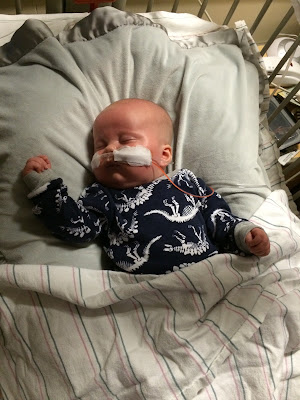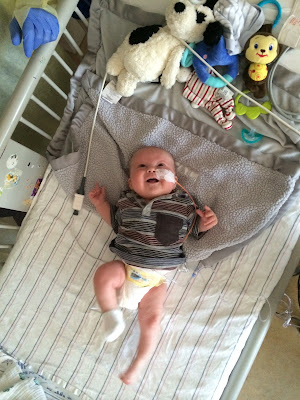 |
| Sam, sporting camo-colored Sea Bands (which are supposed to reduce nausea*) and an unintentionally matched Where the Wild Things Are shirt. |
- The chemo side effects, including the associated discomfort, seem mostly to be gone. We're trying to reduce Sam's morphine dose so that he remains comfortable but not dopey. (Against the odds, he seems to have kept most of his hair.)
- Sam's ANC, a measure of white blood cells that fight infection, is increasing very rapidly. By design, it was slowly reduced by the chemo from about 6000 to nearly zero. At its nadir a week ago it was 40; today it's above 5000. Sam has months before his immune system will be at full strength, but he's off and running.
- Because his ANC has been above 500 for three straight days, he has reached an important milestone: the donor cells have officially "engrafted"--made their way to Sam's bones and started producing new blood cells.
- Although he gets fevers every few days (and is promptly medicated and tested for infection), Sam has yet to test positive for anything except the common cold.
- Near as we can tell, Sam does not feel any discomfort from the fractured vertebra.
- Sam's donor was perfectly matched, but how good and permanent is the engraftment? The first of several ongoing "chimerism" tests has been sent to a lab in Minnesota, results to be returned in three or four days. The eventual goal is for the ratio of Sam's blood to donor blood to be heavily weighted toward the donor--evidence that Sam's blood comes from the donor's marrow and not his own (i.e., good engraftment).
- Will he get graft-versus-host disease, and how much?
- Will we successfully avoid infections while he's still so compromised?
Meanwhile, life goes on...
 |
| Mom reading Sandra Boynton's Barnyard Dance! to a possibly alert audience. |
* No damned idea how.











